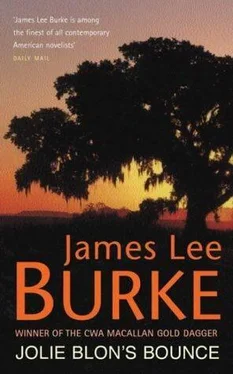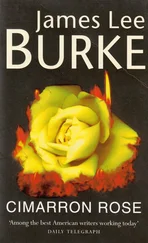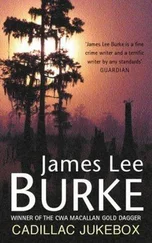
James Lee Burke
Jolie Blon’s Bounce
Book 12 in the Robicheaux series, 2002
Many people are involved in the career of an author, just as many are involved in the editing and production of a book, but very few of their names appear on the book jacket. Hence, I would like to give thanks to some of the people who have been so helpful to me and supportive of my work over the last forty years:
My original agent, the late Kurt Hellmer; my first editor, Joyce Hartman, at Houghton Mifflin; Bruce Carrick at Scribner; Martha Lacy Hall, Les Phillabaum, John Easterly, and the late Michael Pinkston at Louisiana State University Press; Rob Cowley at Holt; Roger Donald and Bill Phillips at Little, Brown; Robert Mecoy at Avon; Robert Miller and Brian Defiore at Hyperion; Shawn Coyne at Doubleday; George Lucas at Pocket Books; Carolyn Reidy, Chuck Adams, Michael Korda, and David Rosenthal at Simon amp; Schuster; and Susan Lamb and Jane Wood at Orion in Great Britain.
I would also like to thank my agents, Philip Spitzer and Joel Gotler, for their many years of commitment to my work, and Patricia Mulcahy, who has edited my work and been a family friend for thirteen years.
Once again, I would like to express my gratitude to my family: my wife, Pearl, and our four children, Jim Jr., Andree, Pamala, and Alafair.
Finally, in the words of Dave Robicheaux, may God bless reference librarians everywhere.
For Rick and Carole DeMarinis and Paul and Elizabeth Zarzysk
Growing up during the 1940s in New Iberia, down on the Gulf Coast, I never doubted how the world worked. At dawn the antebellum homes along East Main loomed out of the mists, their columned porches and garden walkways and second-story verandas soaked with dew, the chimneys and slate roofs softly molded by the canopy of live oaks that arched over the entire street.
The stacks of sunken U.S. Navy ships lay sideways in Pearl Harbor and service stars hung inside front windows all over New Iberia. But on East Main, in the false dawn, the air was heavy with the smell of night-blooming flowers and lichen on damp stone and the fecund odor of Bayou Teche, and even though a gold service star may have hung in a window of a grand mansion, indicating the death of a serviceman in the family, the year could have been mistaken for 1861 rather than
Even when the sun broke above the horizon and the ice wagons and the milk delivery came down the street on iron-rimmed wheels and the Negro help began reporting for work at their employers' back doors, the light was never harsh, never superheated or smelling of tar roads and dust as it was in other neighborhoods. Instead it filtered through Spanish moss and bamboo and philodendron that dripped with beads of moisture as big as marbles, so that even in the midst of summer the morning came to those who lived here with a blue softness that daily told them the earth was a grand place, its design vouchsafed in heaven and not to be questioned.
Down the street was the old Frederic Hotel, a lovely pink building with marble columns and potted palms inside, a ballroom, an elevator that looked like a brass birdcage, and a saloon with wood-bladed fans and an elevated, scrolled-iron shoeshine chair and a long, hand- ' carved mahogany bar. Amid the palm fronds and the blue and gray swirls of color in the marble columns were the slot and racehorse machines, ringing with light, their dull pewterlike coin trays offering silent promise to the glad at heart.
Farther down Main were Hopkins and Railroad Avenues, like ancillary conduits into part of the town's history and geography that people did not talk about publicly. When I went to the icehouse on Saturday afternoons with my father, I would look furtively down Railroad at the rows of paintless cribs on each side of the train tracks and at the blowsy women who sat on the stoops, hung over, their knees apart under their loose cotton dresses, perhaps dipping beer out of a bucket two Negro boys carried on a broom handle from Hattie Fontenot's bar.
I came to learn early on that no venal or meretricious enterprise existed without a community's consent. I thought I understood the nature of evil. I learned at age twelve I did not.
My half brother, who was fifteen months younger than I, was named Jimmie Robicheaux. His mother was a prostitute in Abbeville, but he and I were raised together, largely by our father, known as Big Aldous, who was a trapper and commercial fisherman and offshore derrick man. As children Jimmie and I were inseparable. On summer evenings we used to go to the lighted ball games at City Park and slip into the serving lines at barbecues and crab boils at the open-air pavilions. Our larceny was of an innocent kind, I suppose, and we were quite proud of ourselves when we thought we had outsmarted the adult world.
On a hot August night, with lightning rippling through the thunderheads over the Gulf of Mexico, Jimmie and I were walking through a cluster of oak trees on the edge of the park when we saw an old Ford automobile with two couples inside, one in the front seat, one in the back. We heard a woman moan, then her voice mount in volume and intensity. We stared openmouthed as we saw the woman's top half arch backward, her naked breasts lit by the glow from a picnic pavilion, her mouth wide with orgasm.
We started to change direction, but the woman was laughing now, her face sweaty and bright at the open window.
"Hey, boy, you know what we been doin'? It make my pussy feel so good. Hey, come here, you. We been fuckin', boy," she said.
It should have been over, a bad encounter with white trash, probably drunk, caught in barnyard copulation. But the real moment was just beginning. The man behind the steering wheel lit a cigarette, his face flaring like paste in the flame, then stepped out on the gravel. There were tattoos, like dark blue smears, inside his forearms. He used two fingers to lift the blade out of a pocketknife.
"You like to look t'rew people's windows?" he asked.
"No, sir," I said.
"They're just kids, Legion," the woman in back said, putting on her shirt.
"Maybe that's what they gonna always be," the man said.
I had thought his words were intended simply to frighten us. But I could see his face clearly now, the hair combed back like black pitch, the narrow white face with vertical lines in it, the eyes that could look upon a child as the source of his rage against the universe.
Then Jimmie and I were running in the darkness, our hearts pounding, forever changed by the knowledge that the world contains pockets of evil that are as dark as the inside of a leather bag.
Because my father was out of town, we ran all the way to the icehouse on Railroad Avenue, behind which was the lit and neatly tended house of Ciro Shanahan, the only man my father ever spoke of with total admiration and trust.
Later in life I would learn why my father had such great respect for his friend. Ciro Shanahan was one of those rare individuals who would suffer in silence and let the world do him severe injury in order to protect those whom he loved.
On a spring night in 1931, Ciro and my father cut their boat engines south of Point Au Fer and stared at the black-green outline of the Louisiana coast in the moonlight. The waves were capping, the wind blowing hard, puffing and snapping the tarp that was stretched over the cases of Mexican whiskey and Cuban rum that my father and Ciro had off-loaded from a trawler ten miles out. My father looked through his field glasses and watched two searchlights sweeping the tops of the waves to the south. Then he rested the glasses on top of the small pilothouse that was built out of raw pine on the stern of the boat and wiped the salt spray off his face with his sleeve and studied the coastline. The running lights of three vessels pitched in the swells between himself and the safety of the shore.
Читать дальше













